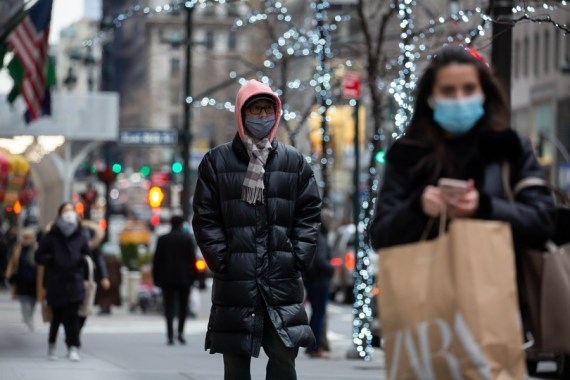New York: There is consensus among scientists and public health experts that reaching ‘herd immunity’ is unlikely in the US, when it comes to Covid-19, the media reported.
According to The New York Times, the experts believe that the virus will most likely become a manageable threat that will continue to circulate in the US for years to come, still causing hospitalisations and deaths but in much smaller numbers.
“The virus is unlikely to go away,” Rustom Antia, an evolutionary biologist at Emory University in Atlanta, was quoted as saying by the publication.
“But we want to do all we can to check that it’s likely to become a mild infection,” he added.
Herd immunity is a form of indirect protection from infectious diseases that can occur with some diseases when a sufficient percentage of a population has become immune to an infection, whether through vaccination or previous infections, thereby reducing the likelihood of infection for individuals who lack immunity.
White House’s chief medical adviser Anthony S. Fauci acknowledged the shift in experts’ thinking, according to the report.
“People were getting confused and thinking you’re never going to get the infections down until you reach this mystical level of herd immunity, whatever that number is,” Fauci said.
“That’s why we stopped using herd immunity in the classic sense.
“I’m saying: Forget that for a second. You vaccinate enough people, the infections are going to go down,” he added.
According to the Johns Hopkins University, the overall global Covid-19 caseload has topped 153.1 million, while the deaths have surged to more than 3.20 million.
In its latest update on Tuesday morning, the University’s Center for Systems Science and Engineering (CSSE) revealed that the current global caseload and death toll stood at 153,177,931 and 3,209,349, respectively.
The US continues to be the worst-hit country with the world’s highest number of cases and deaths at 32,470,363 and 577,492, respectively, according to the CSSE.
IANS
